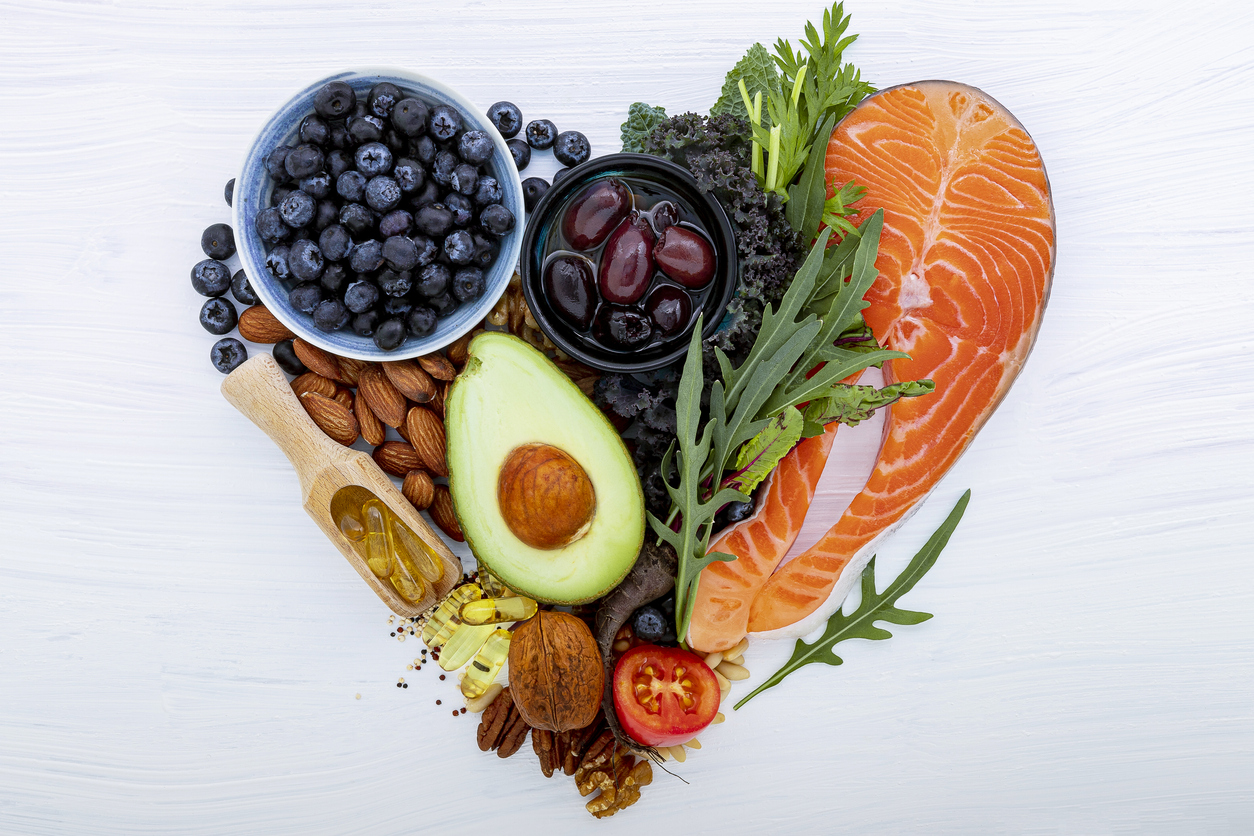Varicose veins are twisted, enlarged veins that can cause discomfort, swelling and circulatory...
Read More

Saturated, monounsaturated and trans fats all occur naturally in food. To the naked eye, these fats all look the same. At room temperature, however, unsaturated fats are liquid (oil, for example), whereas saturated and trans fats are solid (butter, for example). Also, in the way that these fats affect the body, they could not be more different from one another.
In the world of fats, it can be a full-time job trying to figure out what to avoid, and what to select for optimum health. Many think that, in order to lose weight, you should cut all fats out of your diet. However, research shows that the better—and healthier—option is to replace unhealthy fats with essential ones that promote good health.
Polyunsaturated and monounsaturated fats are considered to be the healthiest types of fats, and are a part of a healthy diet, according to the American Heart Association. These unsaturated fats work to lower both bad cholesterol and triglyceride levels in your body.
The Harvard Medical School says that unsaturated fat from food is also essential for the body to be able to build cell membranes, as well as form blood clots and control inflammation.
Sitting on the opposite end of the spectrum are both naturally-occurring and artificial trans fats, a type of fat that does not bring any health benefits to the table. Trans fats have been linked to a higher risk of developing heart disease and Type 2 diabetes. In fact, trans fats are so bad that in 2018, the Food and Drug Administration banned the addition of them to processed foods.
Lying somewhere in between the health values of unsaturated fats and trans fats hides the very common saturated fats, often found in popular products such as red meat, dairy products and many prepared foods. Registered Dietitian Nutritionists recommend trying to keep daily intake of saturated fats to under 10 percent of total calories consumed.
Below are some foods with high, healthy fat content, to consider incorporating into your diet.
Dark chocolate typically consists of around 65 percent polyunsaturated fats. In addition, it is also rich in nutrients such as magnesium, iron and copper.
Avocados are chock full of monounsaturated fat, as well as vitamins C and E. Try one spread on a piece of toasted multigrain bread, or step outside your comfort zone and use avocado as a vegan substitute for butter when baking.
Pick up a fatty or oily fish next time you’re at the grocery store to get your fill of flavor, as well as omega-3 acids. You can choose from salmon, tuna, trout or other types of fish to load up on
healthy, unsaturated fats.
Take your pick from almonds, cashews, pecans, pistachios or walnuts. In addition to containing high levels of unsaturated fat, nuts also give you part of your daily intake of fiber and protein.
Often referred to as a superfood, you can add tofu to just about anything, as it tends to take on the flavor of whatever it is cooked with. Add it to a stir-fry for a quick addition of monounsaturated fats, calcium and protein.
Inspira Health offers outpatient nutrition counseling in Bridgeton, Elmer, Vineland, and Woodbury to help you meet your individual nutritional needs and achieve your health goals!

Varicose veins are twisted, enlarged veins that can cause discomfort, swelling and circulatory...
Read More
Learn about the carnivore diet—a restrictive eating plan that involves consuming only animal-based...
Read More
Learn about how transcarotid artery revascularization (TCAR) compares to traditional treatments like...
Read More
The material set forth in this site in no way seeks to diagnose or treat illness or to serve as a substitute for professional medical care. Please speak with your health care provider if you have a health concern or if you are considering adopting any exercise program or dietary guidelines. For permission to reprint any portion of this website or to be removed from a notification list, please contact us at (856) 537-6772